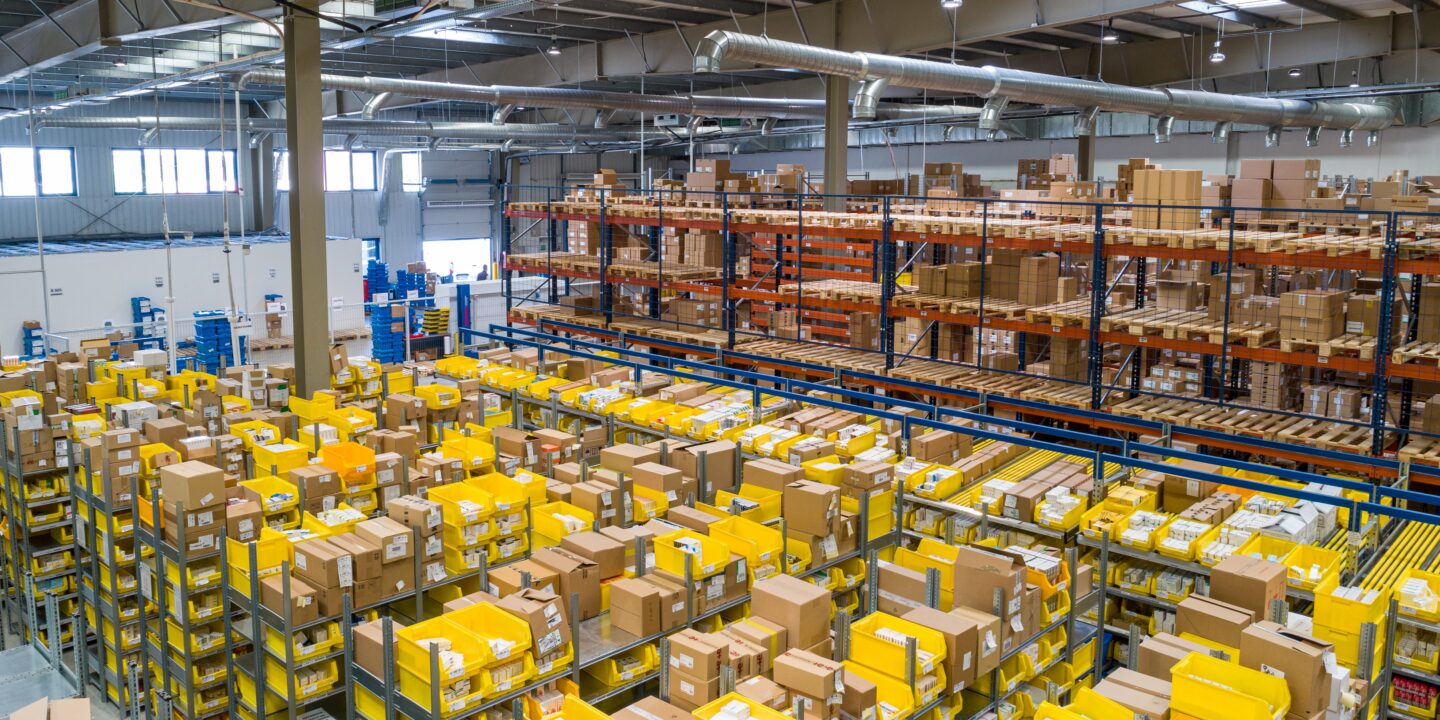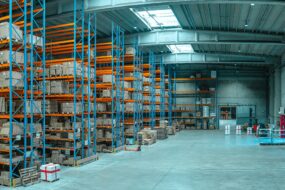Contents

Contract warehousing is when a third-party provider offers warehouse space and logistics services to companies for a fee. I’ve seen this flexible model of warehousing gain in popularity recently, with several manufacturing brands telling me they are using contract warehousing to drive significant cost savings.
Contract warehousing lets brands focus on core competencies, instead of having to learn and build a warehousing program. For businesses looking to outsource their warehousing and logistics operations, contract warehousing offers a good solution.
In this article, we will explore the benefits of contract warehousing and the considerations that businesses need to make when choosing a contract warehouse provider. We will also look at how businesses can select the right contract warehouse for their needs.
Benefits of Contract Warehousing
Contract warehousing offers many benefits to businesses, including:
Cost Savings
One of the main benefits of contract warehousing is cost savings. Instead of investing in their own warehouse facilities, and equipment, and dealing with labor unions, businesses can outsource their warehousing needs to a third-party provider. This results in a reduction in fixed costs and allows businesses to allocate their capital toward other strategic initiatives.
As an example, companies like Ball Corporation, which manufactures ¼ of the nation’s metal cans, will outsource their warehousing to a third party like Buske Logistics. One of the biggest reasons why is because of cost. Using this model they are able to avoid labor unions by outsourcing to companies whose emphasis is on non-union labor. Instead of paying 1 union forklift driver $26 an hour, the company can outsource and pay $20 an hour with the third party’s margin included as well.
Shared Resources
Contract warehousing providers also offer shared resources to businesses. By pooling resources, such as labor, equipment, and technology, contract warehouses can provide businesses with access to a range of resources that they may not have been able to access on their own. This results in cost savings and an increase in efficiency for businesses. A great example is during peak season for brands like Gatorade, third-party warehouses will fly in experienced labor that is already up to speed on the same technology to help out and fill in the gaps.
Flexibility
Contract warehousing provides businesses with the ability to scale their operations up or down depending on their needs. Contract warehouses usually employ a proportion of their workforce as temp labor. Thus, they can adjust their resources to match the changing demands of their clients, making it easier for businesses to change their inventory levels and reduce costs during periods of low demand.
Access to Specialized Facilities
Contract warehousing providers also offer specialized facilities for businesses. For example, a contract warehouse provider may offer cold storage facilities like U.S. Cold Storage or hazardous material storage facilities like those provided by Univar Solutions, which can be costly for businesses to invest in on their own. By utilizing a contract warehouse, businesses can access specialized facilities without incurring the associated upfront costs.
Focus on Core Competencies
Outsourcing non-core activities, such as warehousing and logistics, allows businesses to concentrate on their core competencies. Companies like John Deere, PepsiCo, Pentair, and General Mills all understand this and have used contract warehousing as a solution, leading to better productivity, innovation, and overall business performance.
Considerations for Contract Warehousing
When selecting a contract warehouse to work with there are several factors to consider:
Service Level Agreements (SLAs)
Businesses need to define their performance expectations and establish service level agreements (SLAs) with their contract warehouse provider. This includes expectations for inventory accuracy, order accuracy, and shipping and receiving times. Regular monitoring and reporting are necessary to ensure that the contract warehouse provider is meeting the agreed-upon SLAs. While SLAs can vary depending on a given business, some of the standard metrics in the industry include:
- Damaged and lost inventory: <= 3% of inventory. Everything after is a shared cost.
- On-time delivery: 95%
- Freshness: 98%
- Order Fill Rate: 95%
Data Management
Data sharing and security are important considerations for businesses that are outsourcing their warehousing and logistics operations. It is important to establish protocols for data sharing and to ensure that the contract warehouse provider has adequate security measures in place to protect sensitive business information. System integration is also important to ensure that there is a seamless data flow between the business and the contract warehouse provider.
Liability and Risk Management
Businesses need to establish clear contractual responsibilities with their contract warehouse provider. This includes establishing liability for loss, damage, and theft of goods. Insurance coverage like warehouse legal liability is also an important consideration to ensure that businesses are protected in the event of any unexpected events or damages.
As an example of the importance of establishing liability, inventory write-offs of greater than $1,000,000 are uncommon, but they do happen and it’s important to implement a clause within a contract to de-risk the manufacturer from any negligence by their contract warehousing provider. Typically, the contract warehousing company bears any responsibility for lost inventory over 3% of a year’s throughput or over a certain dollar value.
How to Choose the Right Contract Warehouse
The process to choose the right warehouse for your business should be a thoughtful and detailed process
Location and Access
The location and access of the contract warehouse is an important consideration. Businesses should look for contract warehouses that are located in close proximity to major transportation routes, such as highways and airports. This ensures that inbound and outbound shipments can be processed efficiently. Accessibility for transportation is also essential, as it can affect shipping and receiving times. A strategic way to go about identifying the right location for your 3PL is to use software like Log-hub which can help identify on a map where the optimal place is to find a contract warehouse based on your business’s individual needs.
Warehouse Size and Capacity
The size and capacity of the contract warehouse are another important consideration. Businesses need to ensure that the contract warehouse has adequate space to store their inventory and that it can handle volume fluctuations. The contract warehouse should also have the necessary equipment and technology to manage inventory efficiently. In order to strategically go about planning for the size of your contract warehouse, especially if you need more than 1, a robust software like Coupa, formerly LlamaSoft, can help identify your space requirements.
Experience and Expertise
It is important to choose a contract warehouse provider that has experience and expertise in the industry. For example, if a business is dealing with perishable goods, it is important to choose a contract warehouse provider that has experience in managing such inventory. Businesses should also look for providers with a track record of success, as this is a good indication of their reliability and quality of service.
Request for Quotation (RFQ)
To compare multiple contract warehousing solutions, it’s important to send out an RFQ with standard questions across the board. That way you can make an apples-to-apples comparison. Factors to consider when preparing an RFQ include:
- Company background
- Scope of work
- Warehouse management system (WMS) requirements
- Required security
- Contract terms (fixed or variable?)
- Pricing




